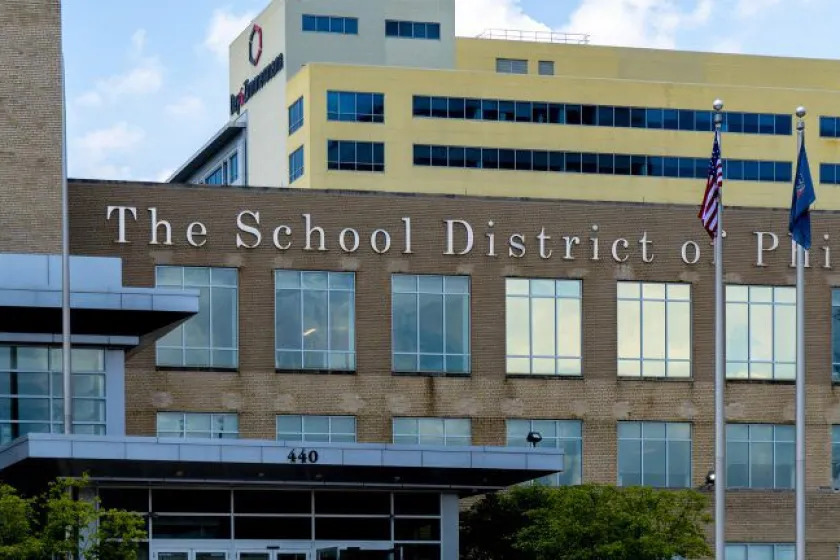States
Philadelphia School Board Considers Closing Franklin Towne Charter Over Alleged Racist Admissions

After much attention, the Philadelphia School Board began shutting Franklin Towne Charter High School. Allegations of prejudice in the school’s admissions procedure sparked this controversy. Charter schools may follow the board’s response to these issues and possible equal opportunity breaches.
Franklin Towne Charter High School admissions charges of racism are at the center of the issue. The school’s admissions procedure may have routinely discriminated against Black pupils. Peng Chao, the district’s interim charter school administrator, said that 110 children from 17 city ZIP codes, some of which are majority Black, were denied entry.
The school’s compliance with charter school policies and regulations on equity and justice is questioned by this stark gap. The charges sparked a debate about charter school transparency and accountability.
Philadelphia School Board: Defending Franklin Towne Charter High School
CEO Brianna O’Donnell defends the school, saying the district’s “revocation campaign is politically motivated.” O’Donnell has also accused the district of trying to re-fund as many charter schools as possible, raising doubts about its objectives.
O’Donnell stressed that the facts and evidence do not justify the revocation and expressed confidence that they would succeed on appeal even if the board chooses to withdraw the school’s charter. This conversation shows the intricacies of school closures and their effects on schools and communities.
Unintended Consequences: Impact On Students And Staff
The board is split on whether to withdraw Franklin Towne Charter High School’s charter, with some worried about students and staff. However, they have underlined the need to address prejudice in admissions to provide all students equal opportunity.
The school’s incident has increased awareness of racism and prejudice in education and the need for comprehensive investigations and accountability to establish a fair and equal learning environment for all children.
Education system equity and justice are highlighted by Franklin Towne Charter High School’s imminent failure owing to racial admissions. This case may impact charter schools and promote diversity, inclusiveness, and equal opportunity.
Community Response: Rallying Against Racism In Education
Franklin Towne Charter High School’s admissions procedure racism allegations drew community outrage. The incident has sparked public discussions, protests, and talks about racism in education, pressing for structural change.
Black communities want more equal schools. They argue that fair and unbiased admissions are legal and moral to ensure that all students, regardless of background, get an excellent education.
Organizations and communities oppose racism in education for transparency, accountability, and justice. This increasing community response demonstrates that society acknowledges the need to combat prejudice and build a more inclusive educational environment.
National Implications: Setting A Precedent For Charter Schools
Franklin Towne Charter High School’s admissions and shutdown scandal is nationwide. Charter schools around the US are following this case because it might establish a precedent for how racism in admissions is handled.
The Philadelphia Board of Education’s ruling would undoubtedly affect charter schools’ admissions process, which must be fair and nondiscriminatory. Schools countrywide may need to reevaluate their policies to prevent similar claims and legal action.
This case highlights the need to address persistent racial inequities in education and may inspire other districts to evaluate their admissions policies to avoid similar issues.
The Role Of Educational Leadership: Accountability And Transparency
Franklin Towne Charter High School’s racism claims have highlighted educational leaders’ duties. It calls into question their admissions process responsibility and openness in guaranteeing equality and justice. Educational leaders are responsible for promoting diversity and inclusion. This case emphasizes the need for transparent, legal, and nondiscriminatory admissions practices.
Read Also: Addressing Racial Disparities In Maternal Health: A New Center’s Mission
Legal Challenges: Navigating The Complex Terrain Of Charter School Laws
Franklin Towne Charter High School’s admissions process racism charges have raised a substantial legal issue. State and federal charter school laws are complicated and open to interpretation. This case raises issues regarding charter schools’ legal requirements and how they negotiate them.
Legal experts carefully monitor the issue to see whether Franklin Towne Charter High School broke the law. This involves reviewing state charter school statutes and federal equal education requirements.
This Legal Action Might Lead To Charter School Legislation And Regulatory Changes That Clarify Fairness And Nondiscrimination In Admissions.
Charter Schools And Racial Equity: Examining A Broader Issue
The Franklin Towne Charter High School debate highlights a more significant charter school issue: racial fairness. Systemic admissions prejudice suggests a broader problem.
Advocates say the lawsuit should start a national discourse about charter school racial inequities. It emphasizes the need to overcome these gaps and create an equitable and inclusive educational environment.
Considering this instance, charter school groups and legislators should debate racial fairness in charter school admissions and educational opportunities to guarantee that all children have an equal opportunity to thrive.
The Future Of Franklin Towne Charter High School
Franklin Towne Charter High School’s future is doubtful amid the debate. Charter revocation requires hearings, investigations, and appeals. This uncertainty makes kids, families, and staff anxious about the future. Educational leaders, community people, and the board of education must work together to create a solution ensuring the school follows the law and equity.
The Franklin Towne Charter High School case was a turning point in charter schools, raising problems about equal admissions and racial inequities in education. How this difficult and controversial matter will be addressed, and its influence on charter schools and education is unknown.













You must be logged in to post a comment Login